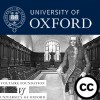Hegel's Enlightenment
Hegel described philosophy as its own time comprehended in thought. For him, that meant understanding the Enlightenment and its aftermath. Examining what the Enlightenment meant for Hegel involves separating its generic meaning as an historical process from its specific sense as a determinate period and its still narrower significance as a canon of thinkers. In the Phenomenology of Spirit (1807), Hegel depicted the Enlightenment era as a struggle between Reason and Faith. This was a stage in a longer development, the passage from rudeness to refinement, which might itself be depicted in terms of gradual enlightenment. As Hegel saw it, the latest episode in the world-historical drama bred crisis, a collision between human values and the conditions of existence. For Hegel, among the most resourceful responses to this situation came from Immanuel Kant and Friedrich Jacobi. However, resourcefulness did not entail success. The lecture will reconstruct Hegel’s thought in terms of his analysis of how these philosophers failed to reconcile rational inquiry with the content of belief.




